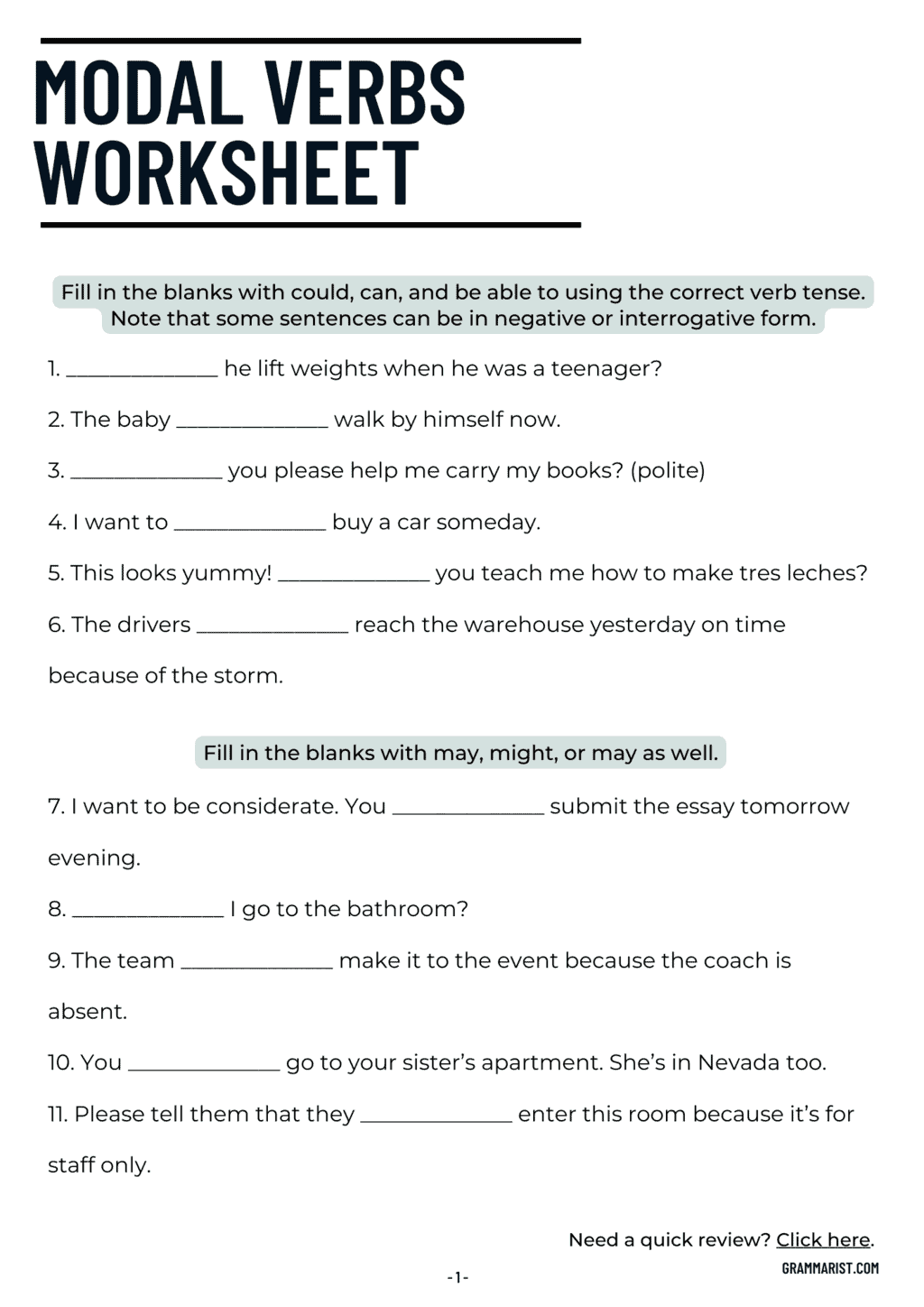Modal verbs are a unique part of the English language that are used to express various meanings such as ability, possibility, obligation, and permission. They are often used in conjunction with other verbs to give more detail to a sentence. One commonly used modal verb is “meant,” but is it truly a modal verb?
Before delving into whether “meant” is a modal verb, it is important to understand what modal verbs are. Modal verbs are a type of auxiliary verb that express modality – the speaker’s attitude towards the action or event being described. They do not change form for different subjects and are always followed by a base verb. Examples of modal verbs include “can,” “could,” “may,” “might,” “shall,” “should,” “will,” “would,” “must,” and “ought to.”
While “meant” is often used to express intention or purpose in a sentence, it is not considered a modal verb. Instead, “meant” is a past participle of the verb “mean.” It is used to indicate that something was intended to be or do something. For example, “I meant to call you yesterday, but I got busy.” In this sentence, “meant” is not functioning as a modal verb but rather as a verb indicating intention.
Unlike modal verbs, “meant” does not express modality or the speaker’s attitude towards the action. Instead, it simply indicates that something was intended or planned. While it can be used in similar contexts to modal verbs, it does not possess the same characteristics that define modal verbs.
In conclusion, while “meant” is a commonly used word in the English language, it is not a modal verb. Modal verbs serve a specific function in expressing modality and are distinct from verbs like “meant” that indicate intention or purpose. Understanding the differences between modal verbs and other verb forms can help improve your overall grasp of English grammar and usage.
So, the next time you come across the word “meant” in a sentence, remember that it is not a modal verb but rather a past participle of the verb “mean.” Keep practicing and honing your language skills to become a more proficient English speaker!
